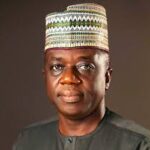By Mercy Aikoye
Three members of the House of Representatives from the Peoples Democratic Party (PDP) and New Nigerian Peoples Party (NNPP) have defected to the All Progressives Congress (APC). The defection was announced during a plenary session presided over by Speaker Abbas Tajudeen.
The NNPP lawmakers who switched allegiance to the APC are Hon. Kabiru Usman, representing Rano/Bunkure/Kibiya, and Hon. Abdullahi Sani, representing Karaye/Rogo Federal Constituency of Kano State. In their separate letters, the lawmakers cited ongoing internal wrangling within the NNPP as the reason for their decision to abandon the party.
Similarly, Hon. Oluwole Oke, who represents Oriade/Obokun Federal Constituency in Osun State, also officially announced his move to the APC. Oke had submitted a letter of resignation from the PDP, dated April 16, 2025, citing his decision to leave the party after consultations with his political associates, family, and friends.
The session was witnessed by the APC National Chairman, Dr. Abdullahi Ganduje, who attended the session in a show of solidarity. Ganduje’s presence underscored the significance of the defection and the APC’s growing strength in the House.
With this defection, the total number of officially documented defections in the House since July 2024 now stands at 27. The APC has emerged as the chief beneficiary, having received 24 new members into its fold.
The defections are a significant blow to the PDP and NNPP, which are already facing internal challenges. The APC, on the other hand, is likely to gain more strength and influence in the House with the addition of these new members.
The reasons cited by the NNPP lawmakers for their defection highlight the internal struggles that many political parties in Nigeria are facing. The ongoing wrangling within the NNPP seems to have driven these lawmakers to seek a more stable and conducive environment in the APC.
The defection of these lawmakers is likely to have implications for the balance of power in the House of Representatives. The APC is expected to gain more leverage and influence, while the PDP and NNPP will need to regroup and reassess their strategies.



